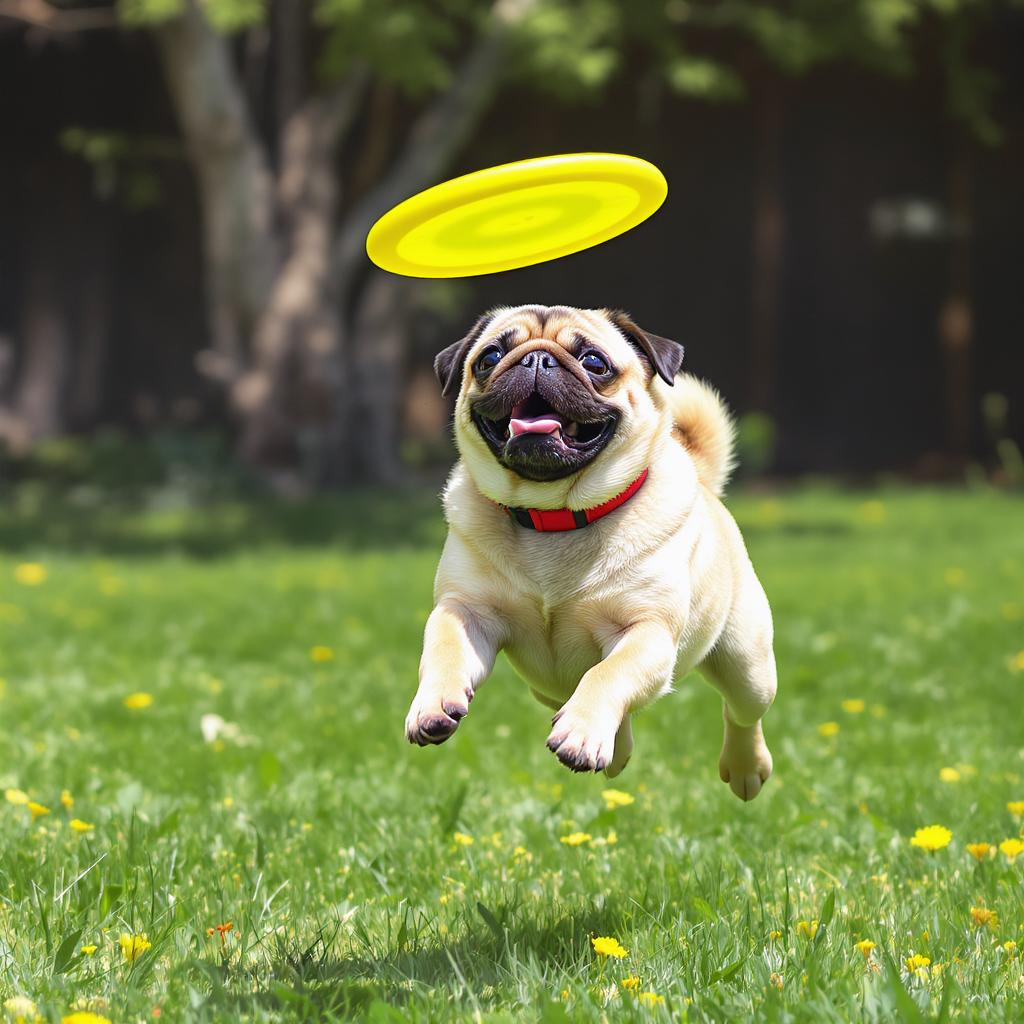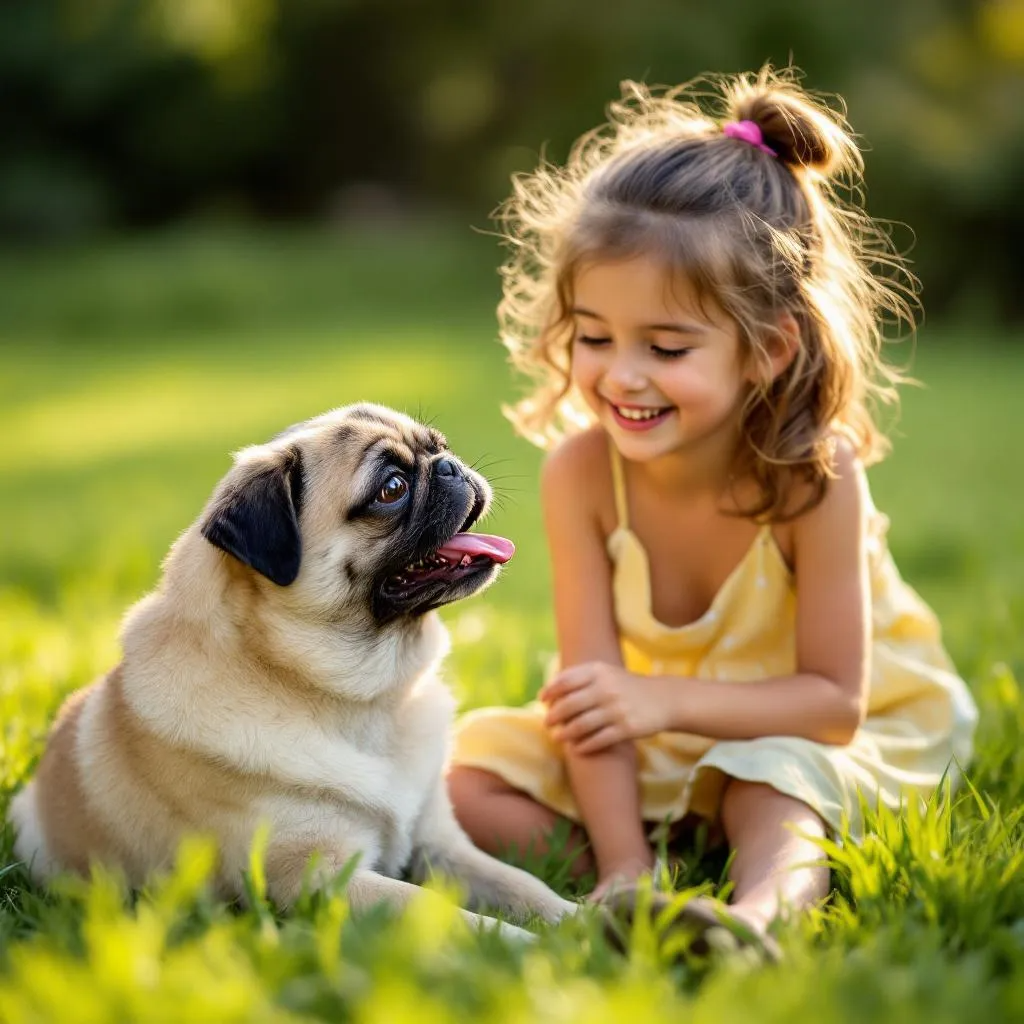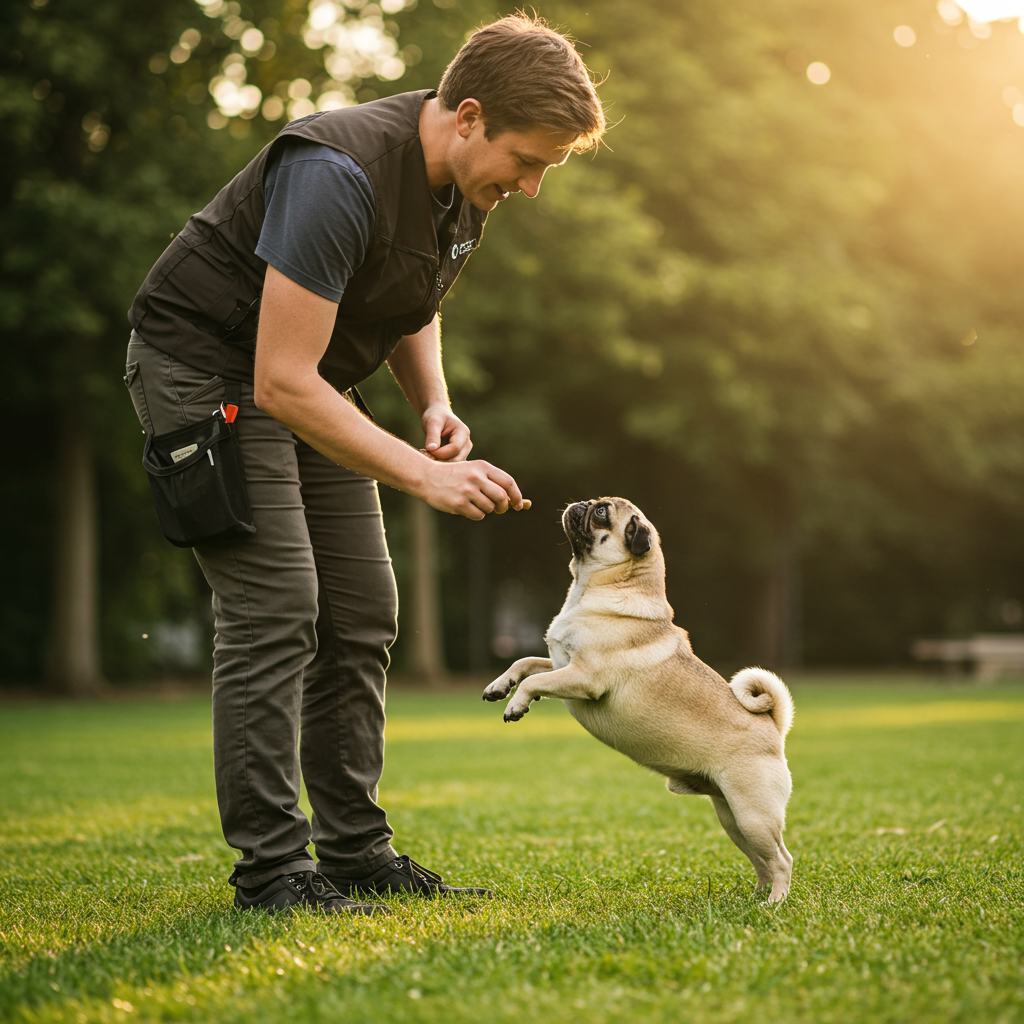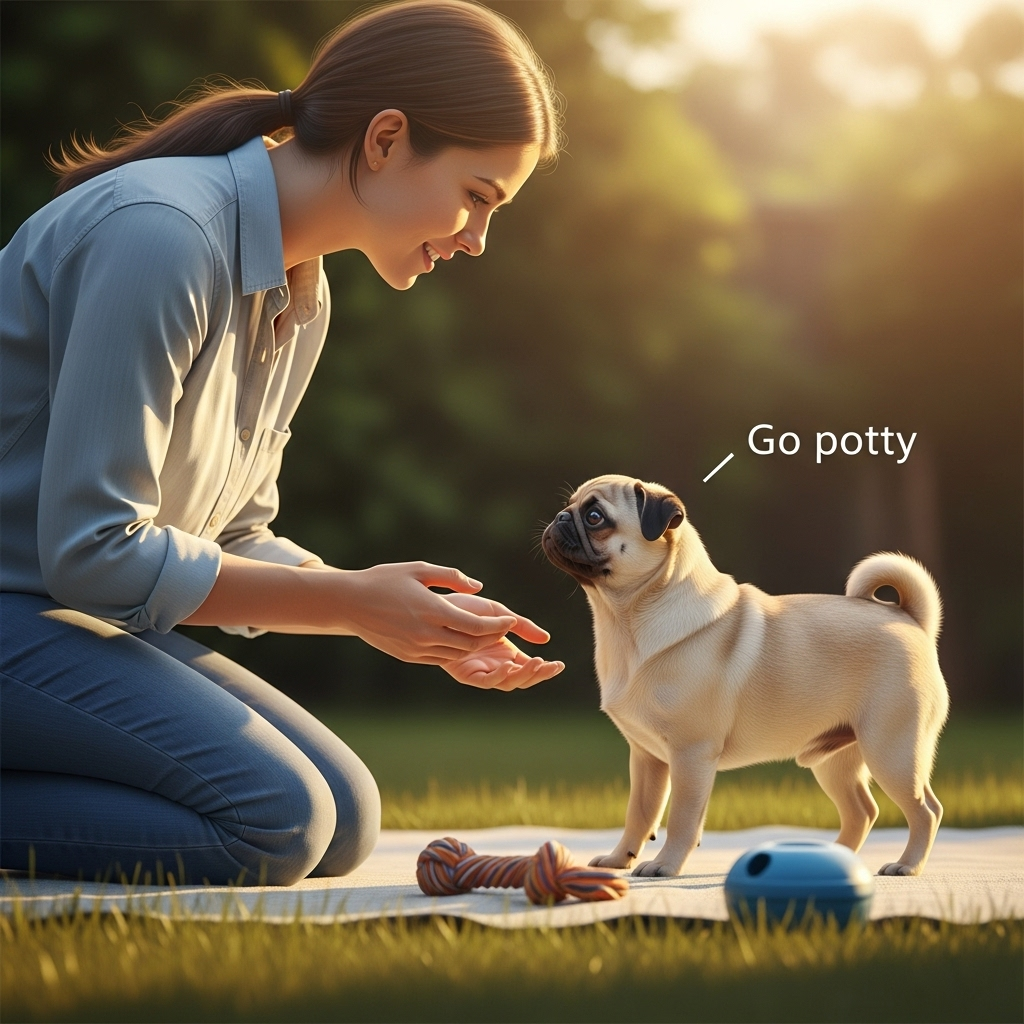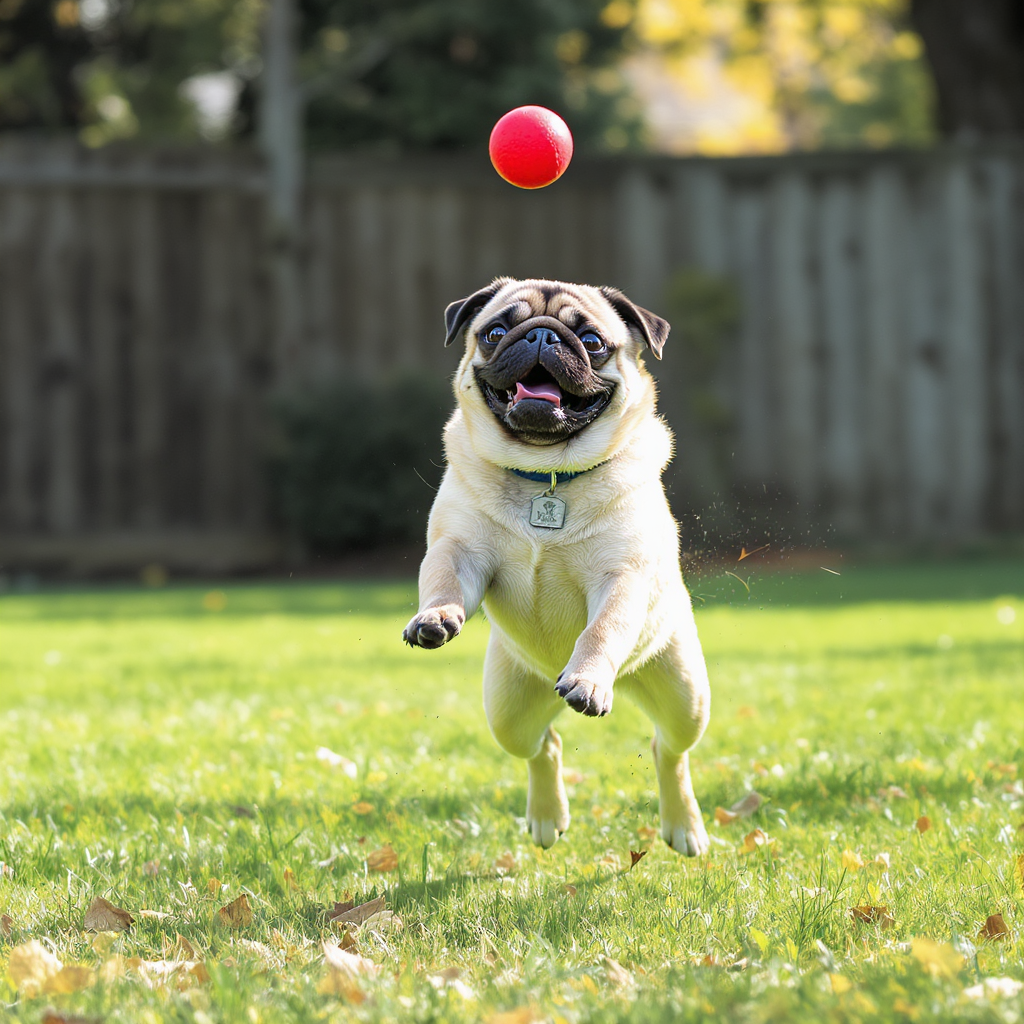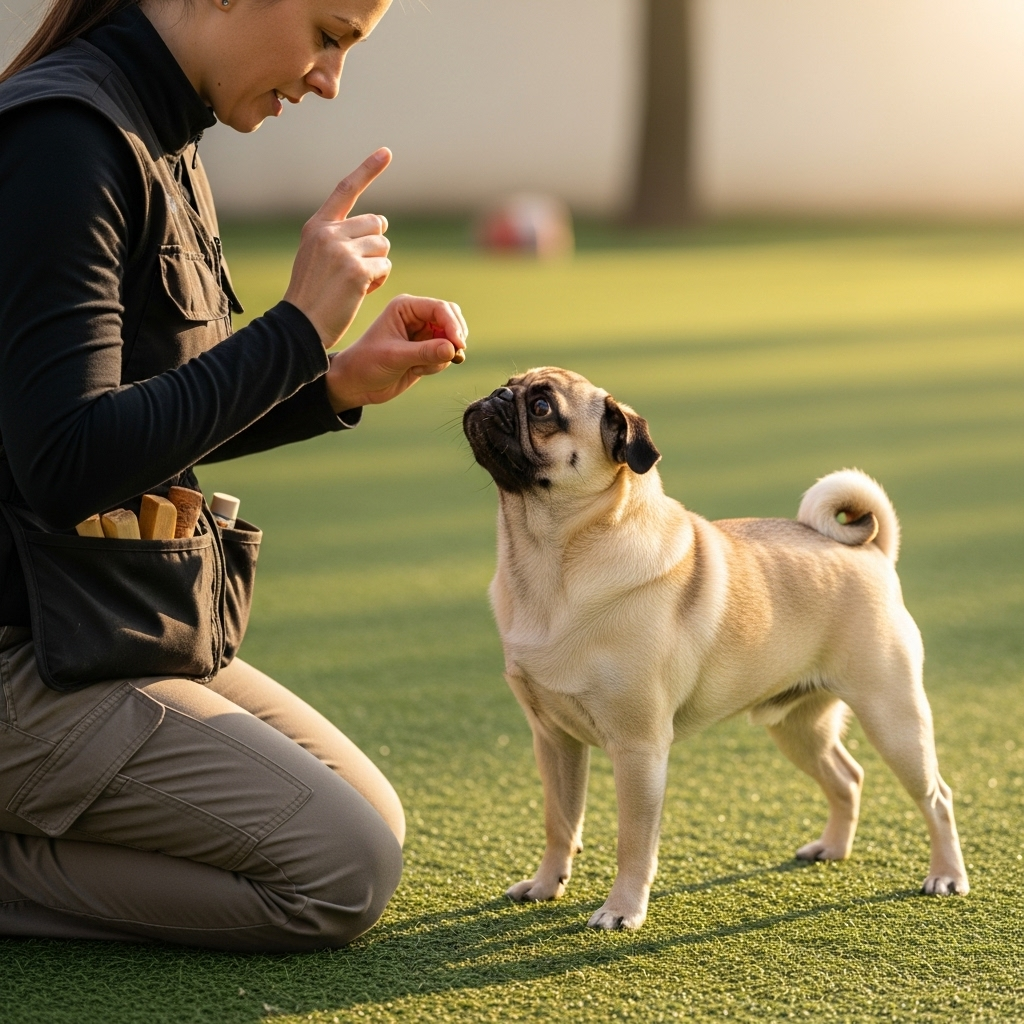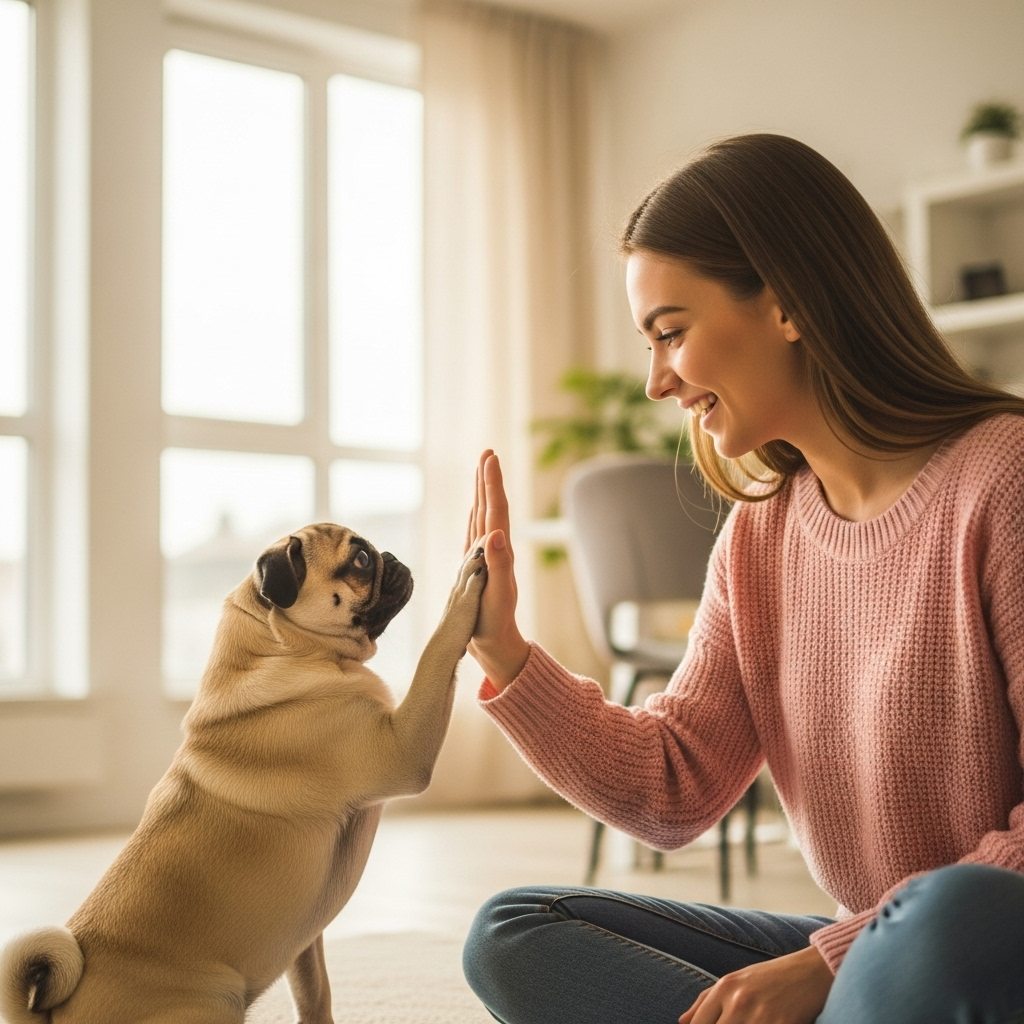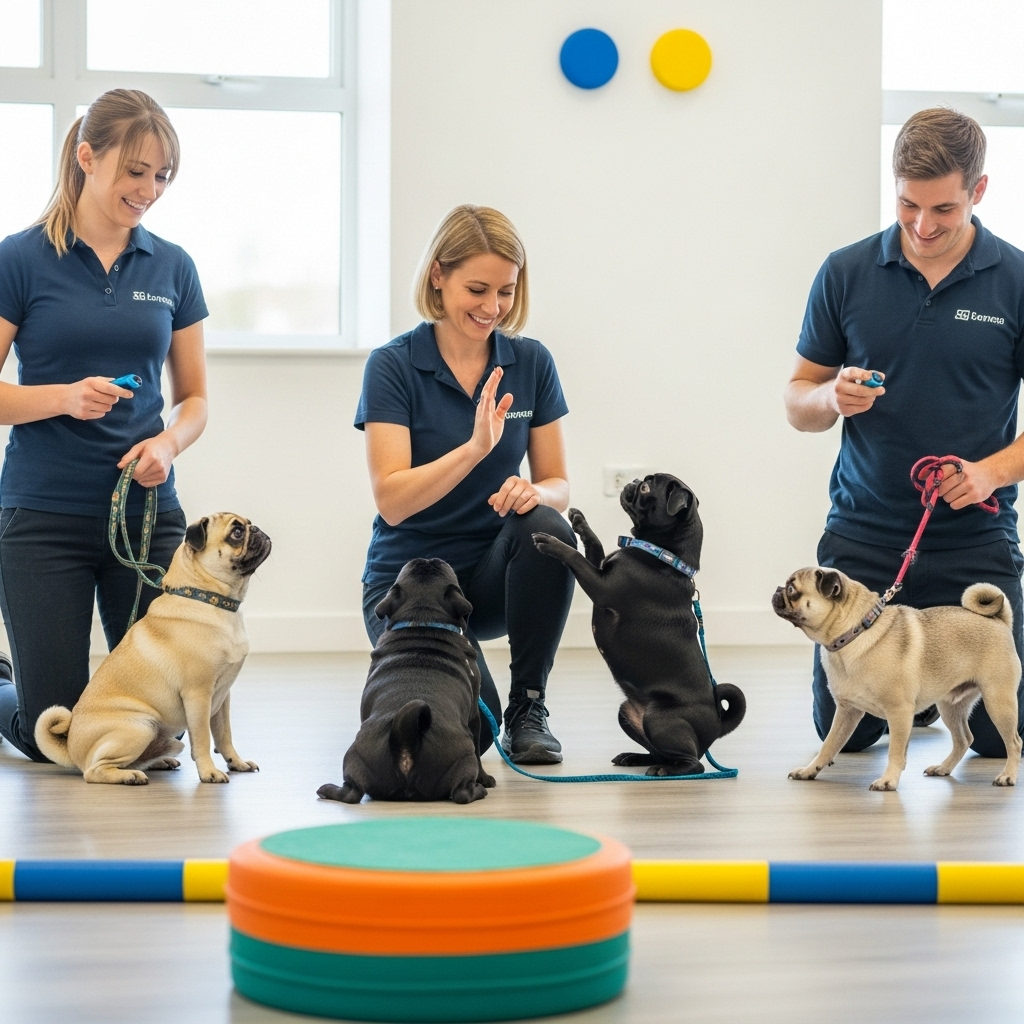Obedience Training
Pug Lover
June 15, 2025
4-Step Obedience Training for Pugs: The Trusted, Loving Way to Raise a Happy, Confident Canine Companion!
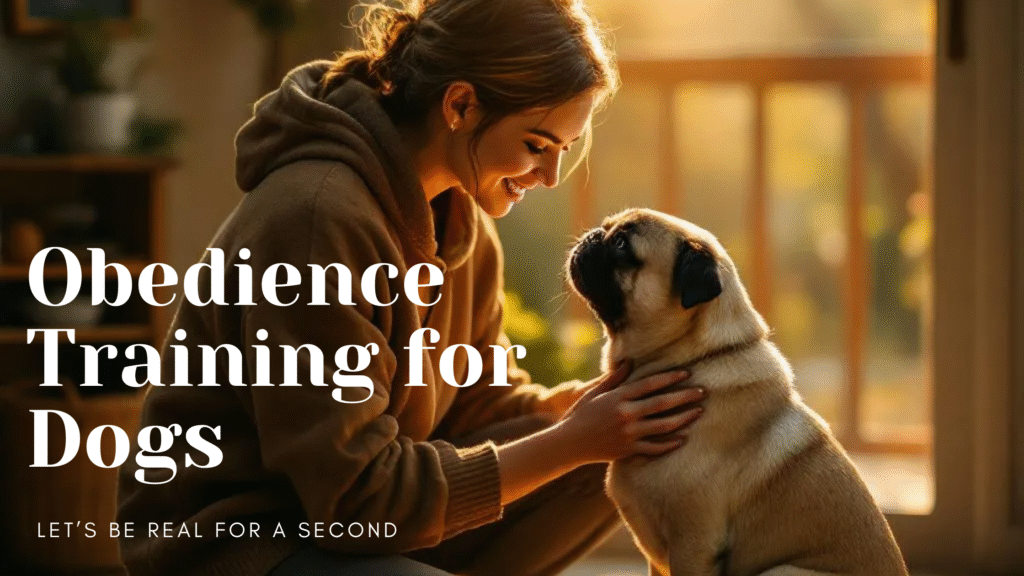
Obedience Training for Pugs: Dog training for beginners, Let’s be real for a second.
Nothing warms your heart more than watching your dog gaze at you with those large, trusting eyes as if you were their entire universe. And in many ways, you are. You feed them, walk them, cuddle them, laugh at their weird quirks, and whisper sweet nothings into their furry ears when the world gets quiet.
But sometimes… it gets frustrating, right?
The moment they chew on your favorite sneakers again, for example. Or when they dart out the front door and your heart drops into your stomach. Or when you ask yourself, “Am I doing this all wrong?” after they ignore you for the hundredth time.
Start by taking a deep breath. You’re not alone. And no, you’re not doing it wrong. You just need a roadmap. A way to speak your dog’s language. A method for transforming love into direction.
That’s what obedience training really is. Not some drill sergeant act. Not about “showing who’s boss.” It’s about building a relationship rooted in understanding, respect, and unconditional love.
Let’s walk through it together.
💡What Is Actually Obedience Training?
Obedience training isn’t just teaching your dog to sit or stay. It’s about creating a bridge—one based on kindness, open communication, and trust—between your world and theirs.
It’s giving your dog the tools they need to succeed in a world that often doesn’t make sense to them. It’s saying, “I’ve got you, and I’ll help you figure this out.”
Obedience is love in action. It’s what happens when structure meets affection.
❤️Why Obedience Training Truly Matters
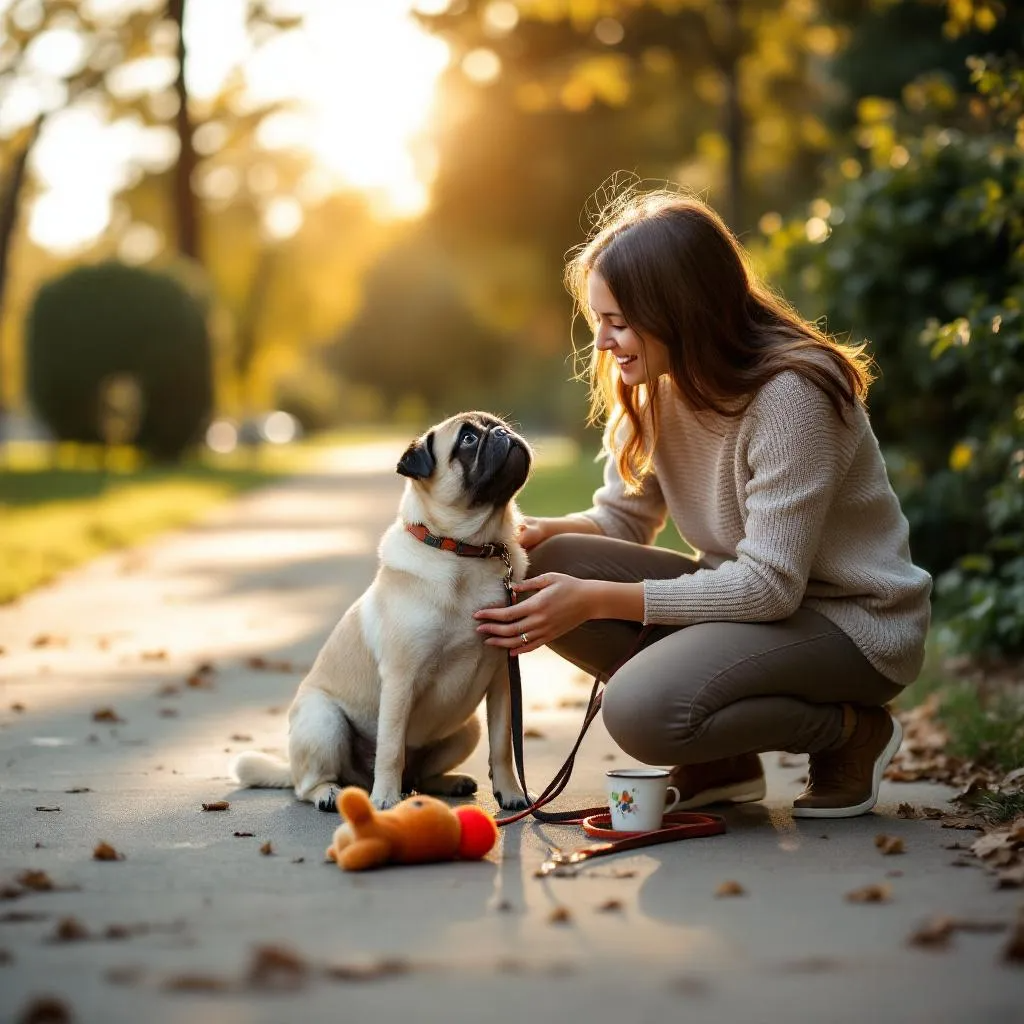
Obedience Training for Pugs : Your dog wants to do right by you. You can see it in their wagging tail, their eager eyes, and the way they follow you from room to room like your tiny, four-legged shadow. They just don’t always know how.
That’s where obedience training comes in. It creates a shared language. It turns chaos into calm. It turns confusion into confidence.
Training matters because it:
prevents your dog from getting into danger when their instincts take over.
increases your dog’s self-confidence, making them feel less nervous and more secure.
allows you to relax during walks and veterinary visits by giving you peace of mind.
strengthens your relationship because all bonds are strengthened by mutual understanding.
Obedience isn’t about control. It’s about compassion. It’s about showing up for your dog in a way that teaches them how to show up for you.
🧩What Makes Obedience Training Work?
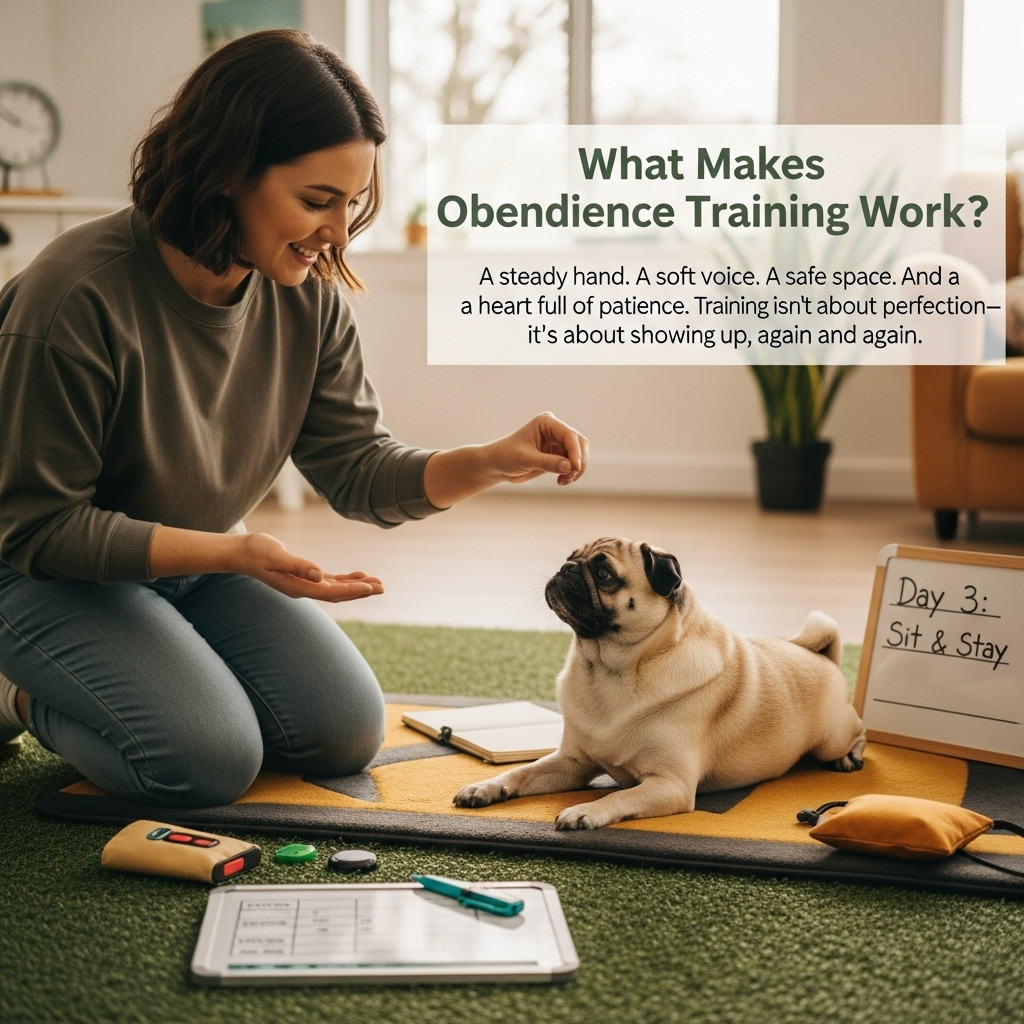
Obedience Training for Pugs : A dog who feels safe and a human who remains dependable, composed, and compassionate even on the difficult days are at the core of any successful training narrative.
Here’s what turns a good training plan into a great one. Best obedience training methods, Positive dog training techniques :
Consistency That Builds Trust
Your dog thrives on routines and repetition. When your expectations stay the same, your dog learns what earns your smile, your praise, and your treats. It’s muscle memory, not magic.
Timing That Speaks the Right Language
Your dog is present-focused. A reward given too late is a missed opportunity. The magic occurs when they mark the exact moment they get it right and celebrate it as though it were a minor triumph.
Positive Reinforcement That Lights Them Up
Would you want to keep trying if all you got was “no” and “stop”? Dogs are the same. But give them a treat, a cheerful “Yes!”, and a belly rub? Watch how their whole face lights up with joy.
That’s when they want to listen. because it is pleasant.
Short, Joyful Sessions That Keep It Fun
Training should never feel like punishment. Make it a game. Five to ten minutes, a few times a day, packed with play and praise, is way more effective than a drawn-out session that leaves you both frustrated.
🗓️A Gentle Step-by-Step Roadmap for Training Success
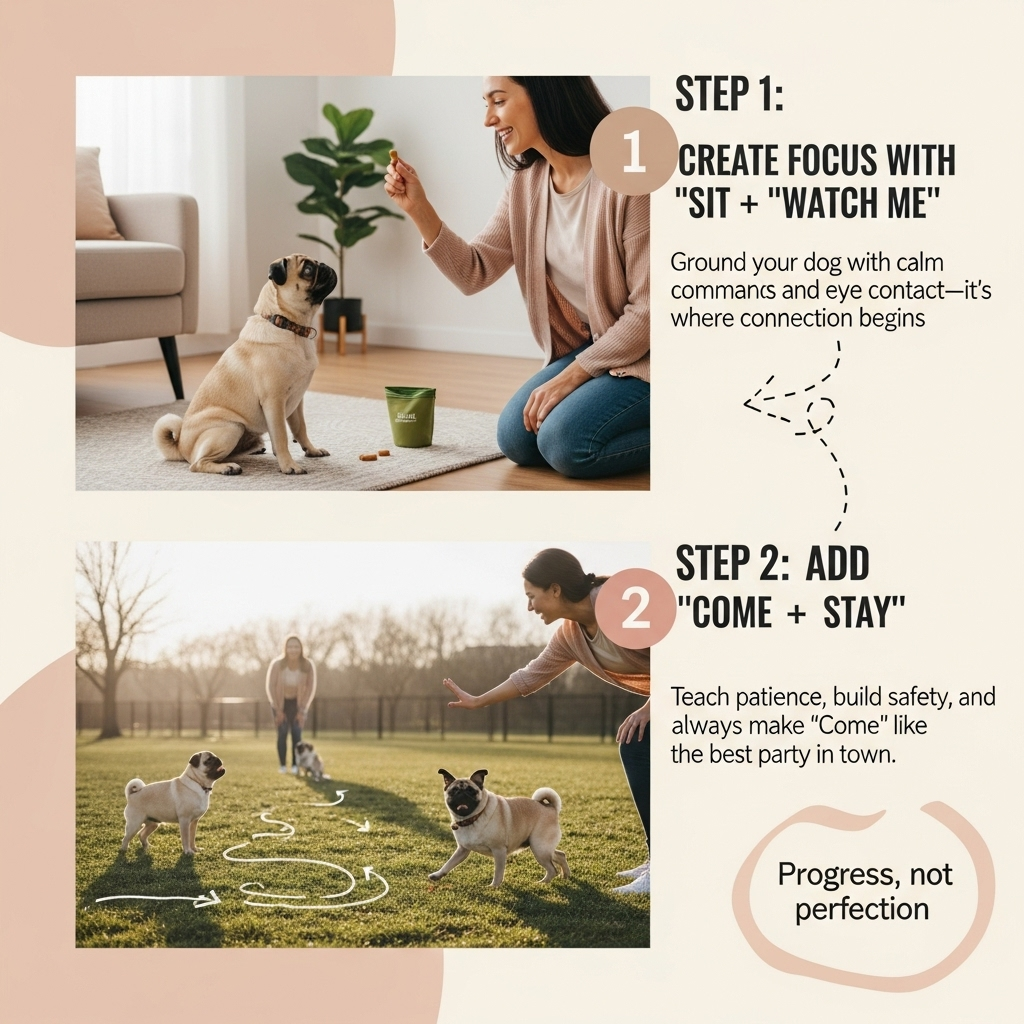
Obedience Training for Pugs : How to train a disobedient pug? Let’s simplify this; there should be no overwhelm or perfectionism, just advancement. Training a Stubborn Pug, Puppy obedience training tips.
Step 1 : Create Focus with “Sit” and “Watch Me”
The first thing your dog needs to learn is how to tune out distractions and lock in with you. Sit is the most crucial grounding command. And teaching them to look them in the eye? That’s where connection begins.
Praise them like crazy when they get it right. Give them a rock star vibe.
Step 2: Include “Come” and “Stay.”
Now that they’re focusing, teach them to wait. To be honest, staying makes breathing easier and teaches patience.
Coming is one of the most important cues. Always make it a party. Excitement, praise, and treats. You want your dog to come running like you’re the best thing they’ve ever seen. To them, why? You are.
Step 3 : Introduce “Down” and “Leave It”
Down helps your pup settle. It’s the cue that says, “Hey, let’s relax.”
Leaving it, on the other hand, can be lifesaving. It stops them from gobbling up that weird mystery food on the sidewalk. It tells them, “I know it’s tempting, but I promise there’s something better if you trust me.”
Step 4 : Practice in the Real World
Training only works if it works everywhere. Start in the living room, then take it outside. Try it on walks, around distractions, and at the park.
When your dog listens in noisy situations as well as quiet ones, the true magic occurs.
 Why obedience training matters? Every Pug Should Know
Why obedience training matters? Every Pug Should Know
Think of these like the ABCs of dog life. Master these, and you’ve got a solid foundation. Pug obedience commands:
Sit: To maintain peace, order, and tranquility in the midst of chaos
Remain: To keep them secure and motionless
Come, so you’re always within reach.
Down: When you require a quiet moment
Leave it: To guard against injury and poor choices
For walks that don’t feel like a tug-of-war, wear heels.
Wait: To instill trust and patience
Off: For limits without being harsh
Every command is a letter of love to your dog, a gentle way to lead them through your life together.
🛑Common Mistakes (And How to Move Past Them Without Shame)
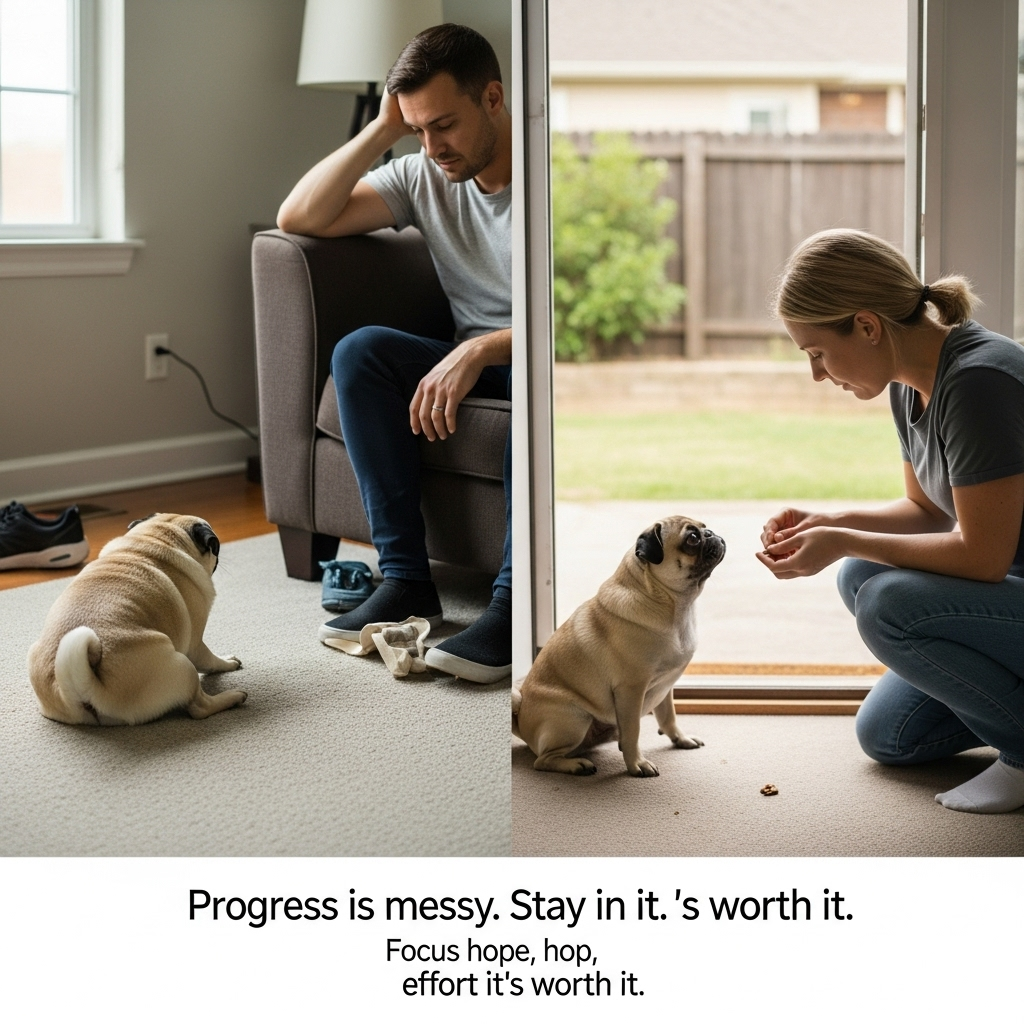
Obedience Training for Dogs: Dog behavior training at home, Every dog owner messes up. You’re human. Additionally, your dog only needs you to keep trying; they don’t expect you to be flawless.
Here are a few traps to watch for basic obedience training for dogs:
Inconsistency: Your dog cannot win if the rules change.
Only training indoors—the living room isn’t where real life happens.
Repeating instructions: They will learn to wait for the third attempt if you say, “Sit, sit, sit.”
Refusing to give rewards too soon: Continue giving praise and treats until the behavior is consistent.
And the biggest mistake? Giving up too early. Progress is messy. Stay in it. It’s worth it.
🐶Real Questions from Real Dog Owners
“Is it too late to train my dog?”
Never. Whether your dog is eight weeks or eight years old, they can still learn. It just takes time, patience, and love.
“What if I mess it up?”
You will, and it’s all right. Dogs are forgiving, and every new day is a fresh start.
“Do I need to hire a professional?”
Not always. You’re more capable than you think. However, asking for help when you’re feeling overwhelmed or stuck isn’t a sign of weakness; rather, it’s love in action.
In conclusion, obedience is love manifested in action.
Training your dog isn’t about perfection. It’s about connection. It’s about giving them the structure they need to feel safe, the freedom they’ve earned, and the joy of being fully understood.
Every sit. Every stay. Every treat, tail wag, and moment spent together is a piece of the narrative you are creating. And it’s a beautiful one.
So don’t overthink it. Don’t get discouraged. Simply keep showing up. Your dog already thinks you’re amazing. Obedience training is all about reminding them that you always have their back. Read more about Pug Health 101.
Table of Contents
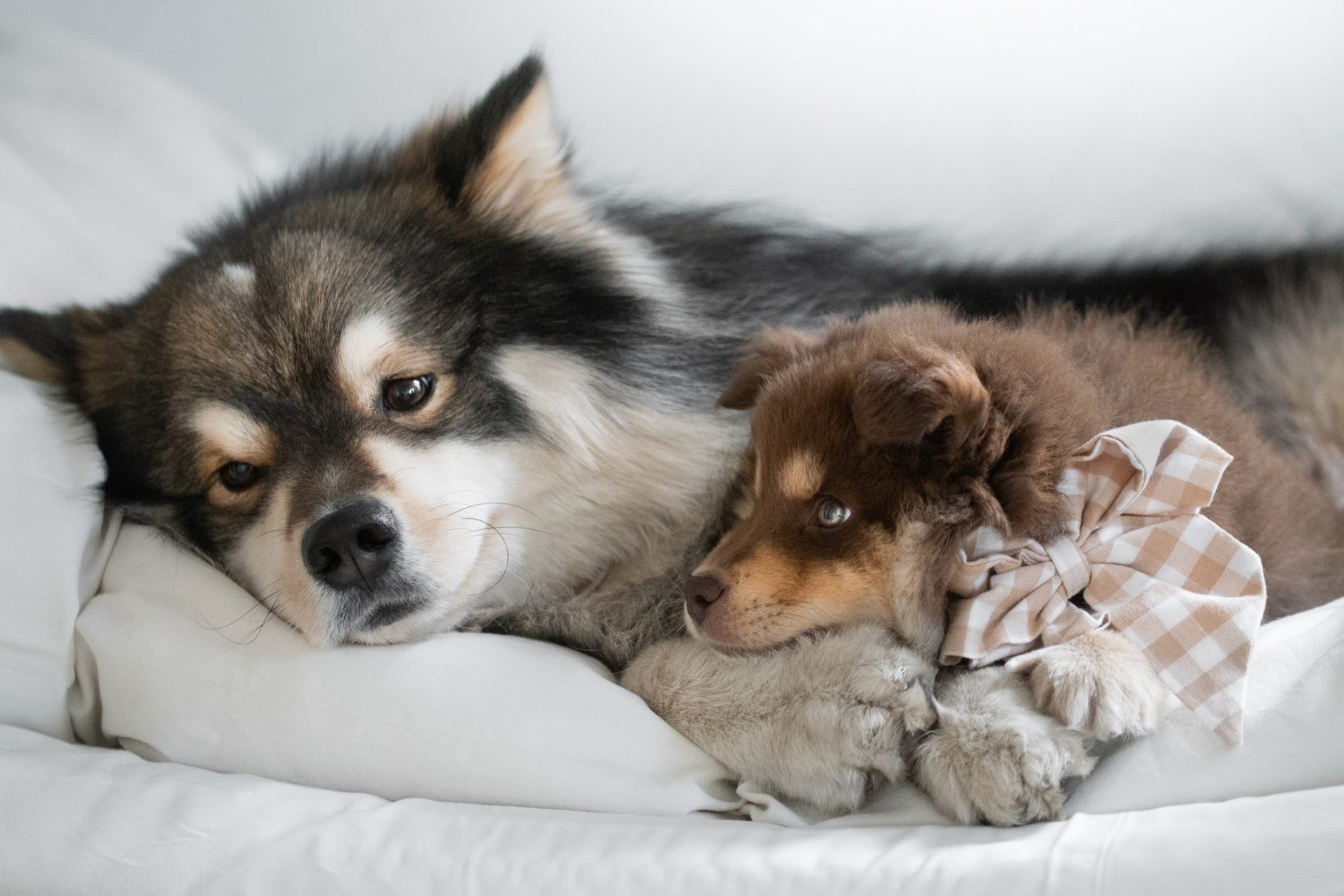
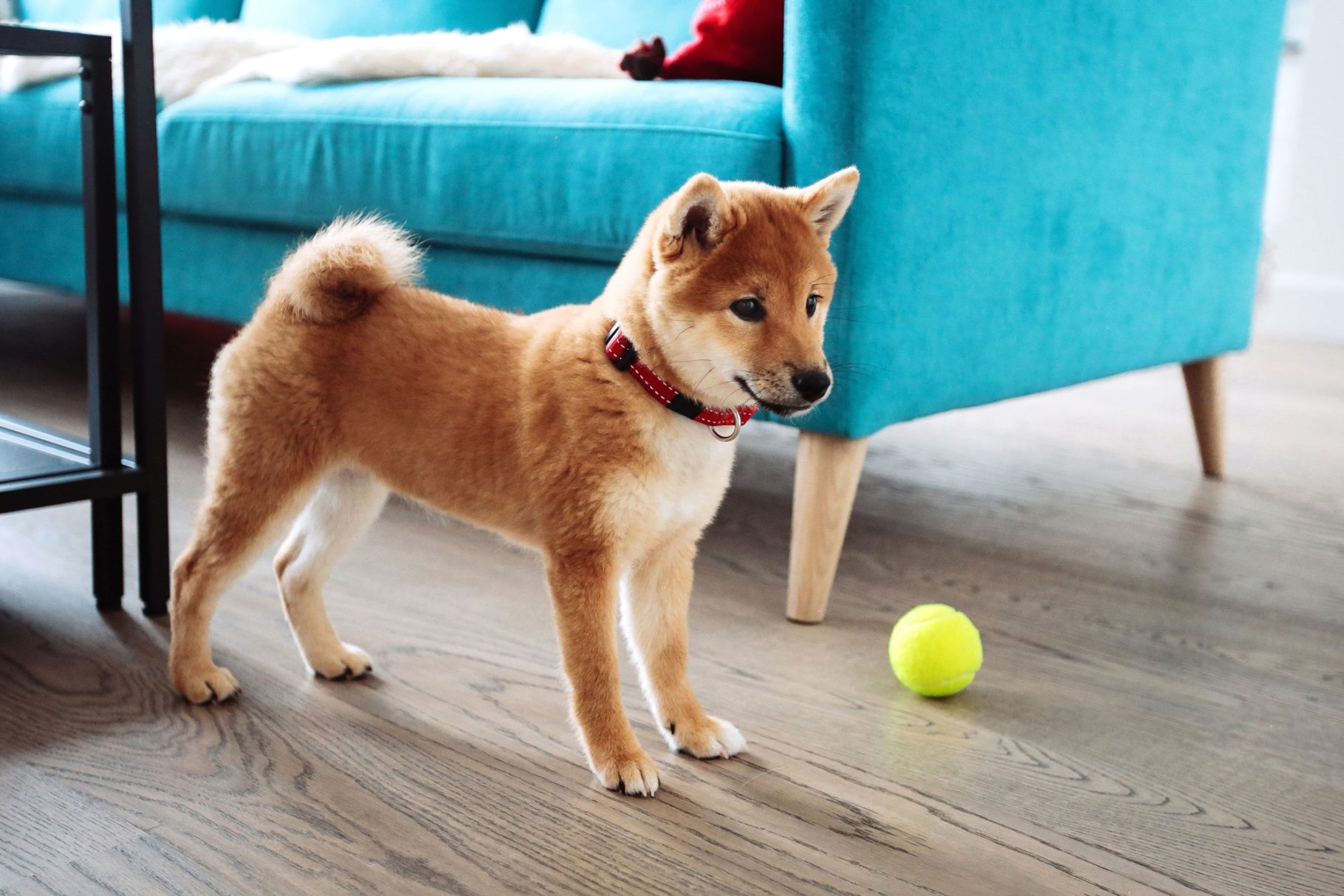
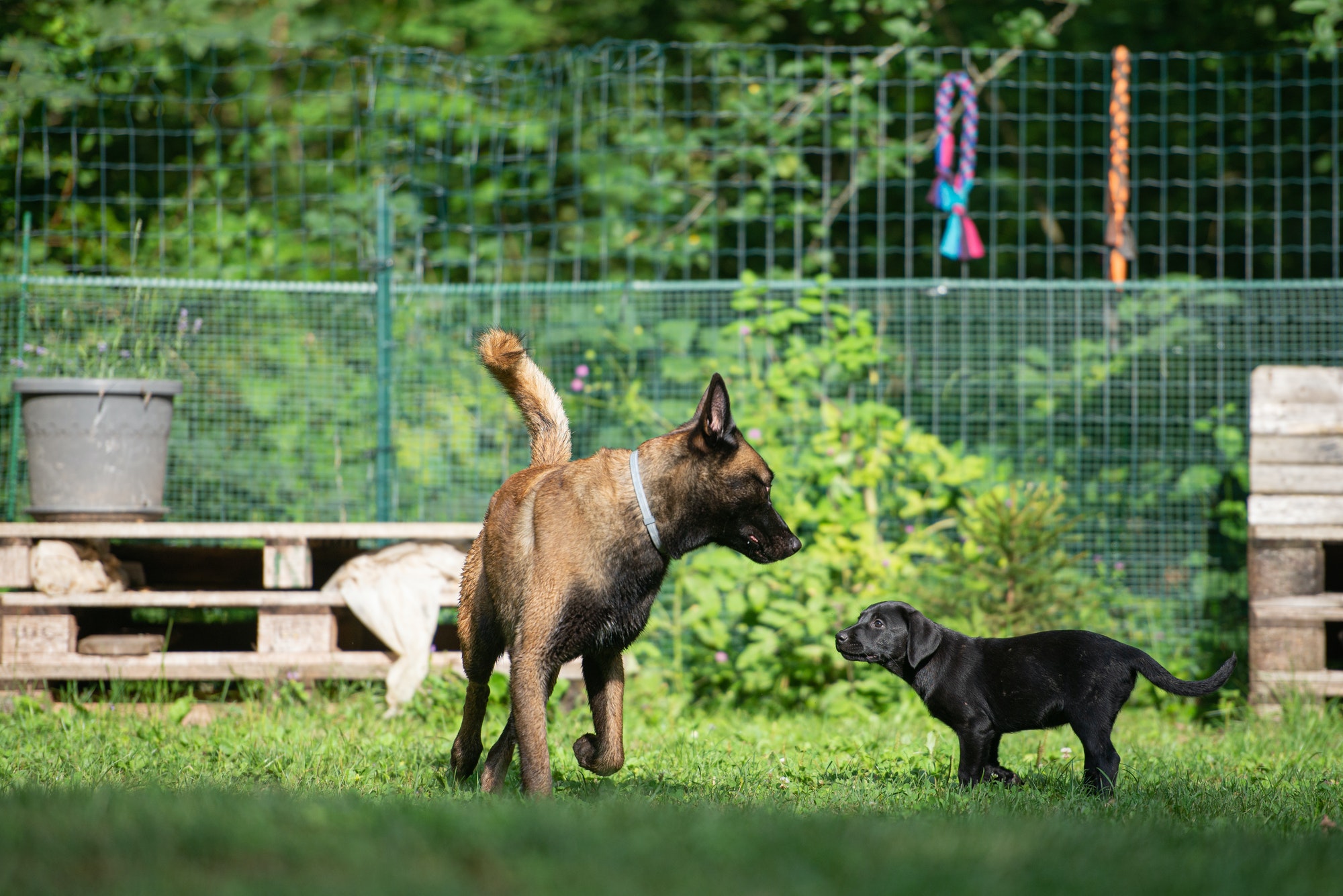
- Quisque aliquet nibh sit amet lectus
- Nulla at metus ultricies, placerat augue
- Curabitur mollis ex vestibulum
- Quisque aliquet nibh sit amet lectus
- Nulla at metus ultricies, placerat augue
- Quisque aliquet nibh sit amet lectus
- Quisque aliquet nibh sit amet lectus
- Curabitur mollis ex vestibulum


 Why obedience training matters? Every Pug Should Know
Why obedience training matters? Every Pug Should Know
